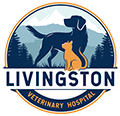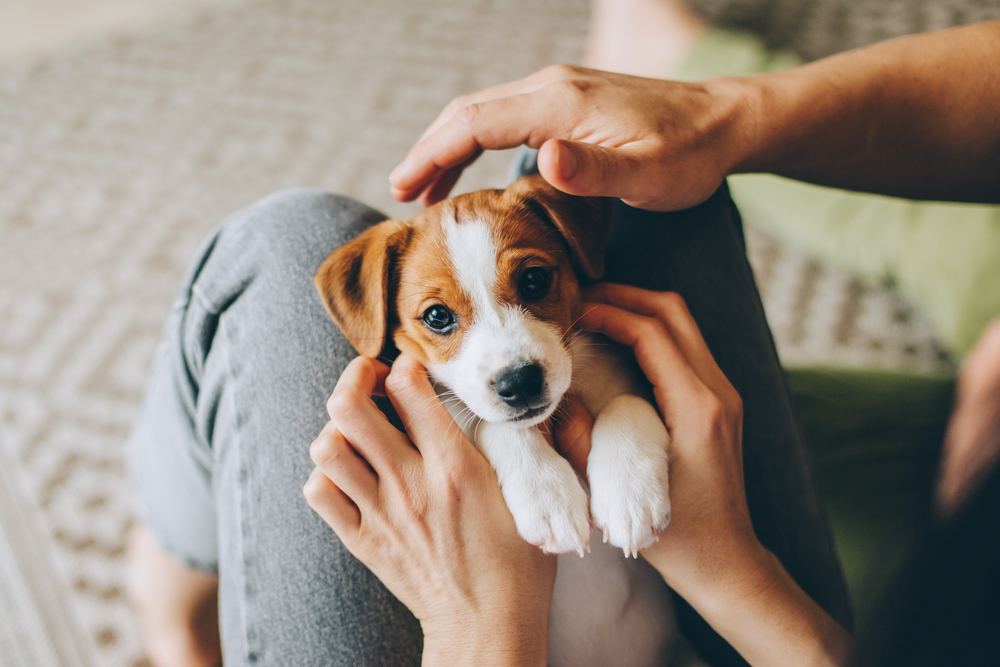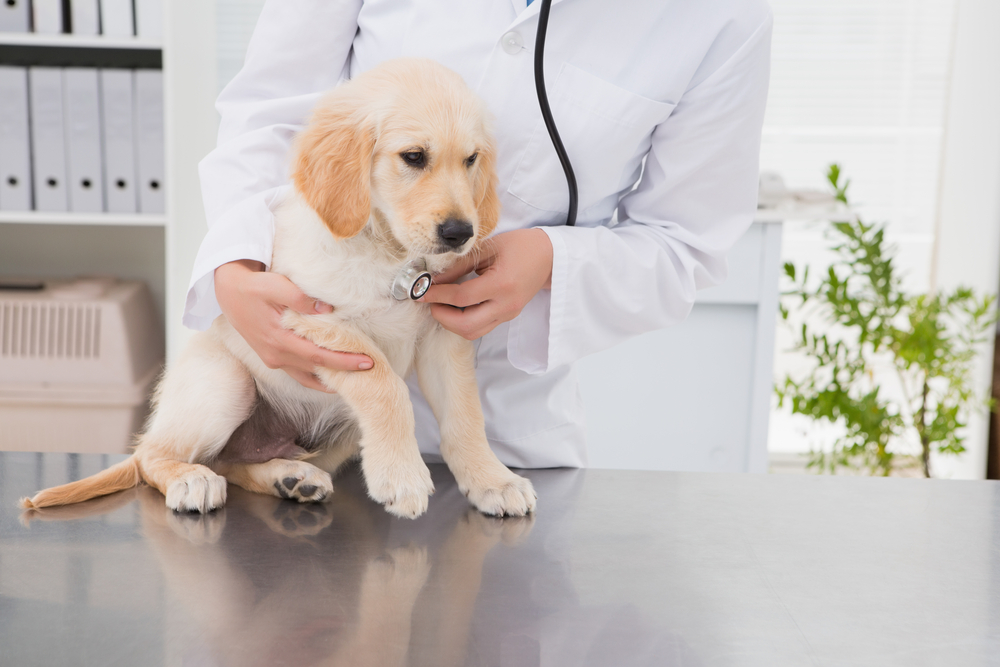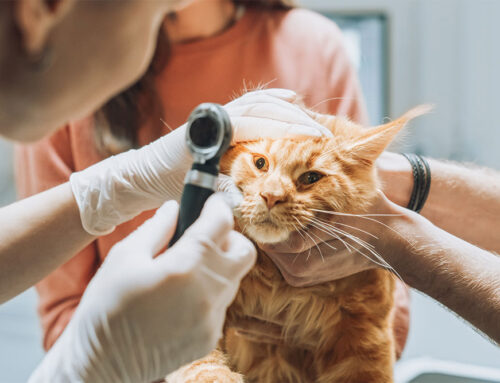Few experiences in our lives are better than bringing home a squishy, wiggly, roly-poly puppy. However, raising a rambunctious, curious, razor-toothed puppy is not for the faint of heart. If you are thinking about adopting a puppy or have a recent pup addition to your family, this post is for you. A puppy is not a puppy forever, and you need to to build a strong foundation now to ensure your four-legged companion grows into a well-behaved and well-adjusted adult dog. Our Livingston Veterinary Hospital team shares five tips to help you set up your puppy for success.
#1: Research puppy care
If you are bringing home your first puppy, do your homework. To ensure you are prepared to raise your rambunctious little rascal, read books, look online, and talk to friends who have raised puppies. If you are interested in a specific dog breed, learn about their characteristics, health, and energy level, crate and potty training techniques, and how to socialize your puppy. To ensure you raise your puppy right, knowledge is power, and learning all you can before bringing home your new family member is vital.
#2: Puppy–proof your home
Your puppy will be curious about everything in your home and will find ways to get into everything imaginable. For your puppy’s safety and your sanity, thoroughly puppy–proof your home. Tour your home with your puppy’s perspective in mind, and remove and secure any potentially dangerous items. To ensure your puppy’s safety, do the following:
- Put locks on cabinets — Common household cleaners can be deadly to pets and should be stored in locked cabinets that your puppy cannot access.
- Remove toxic plants — Many plants and flowers can be toxic to pets. If you’re not sure which plants are safe for your puppy, check out the American Society for the Prevention of Cruelty to Animals (ASPCA) Toxic and Non-Toxic Plants List.
- Store medicine securely — Some human medications can be dangerous or deadly to pets, so always store over-the-counter (OTC) and prescription medicines securely.
- Keep food out of reach — Many foods people eat contain ingredients that are toxic to pets, including chocolate, grapes and raisins, xylitol (i.e., birch sugar), and garlic. For your puppy’s safety, keep all foods stored up high, out of your pooch’s reach.
- Cover electrical cords — A playful puppy who mistakes an electrical cord for a chew toy can receive a life-threatening shock after gnawing a plugged-in cord. Place chew-proof covers or protectors on electrical cords to help eliminate your puppy’s potential injury.
- Block access to dangerous areas — If you prefer to keep your puppy away from certain home areas, keep them safe by using a pet gate to block their access.
- Ensure your yard is secure — Locate and repair any fence gaps, missing or broken boards, and holes dug beneath. Ensure fence gates stay closed and latched.
#3: Get the puppy essentials
You want your puppy to settle in easily when they arrive at their fur-ever home. To prepare for your new puppy’s arrival, make an essentials list, which should include the following:
- Crate
- Bedding
- Leash
- Collar
- Identification tags
- Waste bags
- Food and water dishes
- Food
- Long-lasting and training treats
- Toys
- Food puzzles
- Teething toys and chews
- Pet-safe cleaning supplies
#4: Schedule routine veterinary care for your puppy
Preventive care is essential to ensure your new puppy grows strong and healthy. Once your puppy has moved in, schedule their veterinary wellness exam. Your veterinarian will perform a thorough physical exam to ensure your new puppy is healthy and determine their appropriate vaccine schedule. By keeping your puppy’s vaccines up-to-date, you provide them with protection from many dangerous diseases. To protect your puppy from nasty external and internal parasites, your veterinarian will also recommend your furry pal’s appropriate parasite prevention protocol.
#5: Socialize your puppy
For your puppy to grow up to become a well-adjusted, confident, and obedient dog, they need appropriate socialization during their first few months. Dogs who are socialized from a young age are better able to cope with new people, animals, and situations. To socialize your puppy appropriately, introduce them to the following:
- People — Introduce your puppy to young children, tall people, and short people; people of different races, genders, and sizes; people wearing different clothing and accessories; and people with different hairstyles and facial hair.
- Animals — Introduce your puppy to other dogs and cats, and point out wildlife, such as birds and squirrels, to them.
- Sounds — Expose your puppy to many different sounds, including traffic, television, crowds, vacuum cleaners, and thunderstorms.
- Environments — Visit various neighborhoods and pet-friendly establishments with your puppy.
- Touch — To make future grooming and veterinary visits easier, acclimate your puppy to being touched all over their body.
- Classes — Enrolling in a puppy socialization class is a great way to introduce your furry companion to other pets and people while they learn basic obedience.
When you set up your puppy for success, you help ensure they will grow up to live a long, happy, healthy life. If you have questions about puppy care, or if your four-legged friend needs their vaccinations, schedule an appointment with our Livingston Veterinary Hospital team.








Leave A Comment